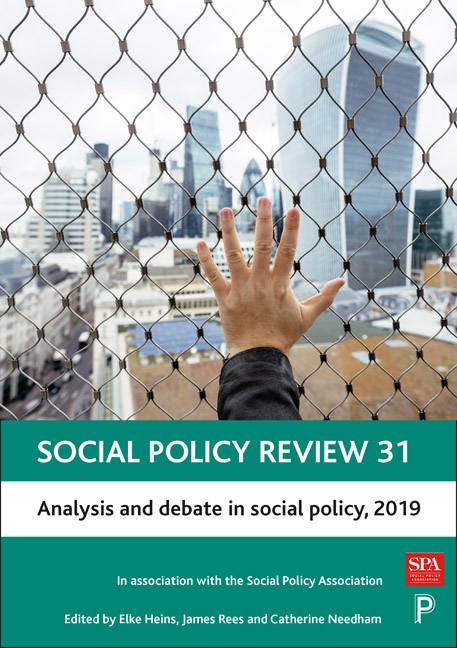2 - Disability and austerity: the perfect storm of attacks on social rights
Published online by Cambridge University Press: 30 April 2022
Summary
Introduction
Social rights can be conceptualised as the enforceable choice to access resources to meet your needs. Marshall maintained that social rights distributed through the welfare state were an important measure of a mature citizenship-based society, after political and civil rights (Marshall, 1950). Since its inception, disabled people have had an uneasy relationship with the welfare state as the means of distributing these resources. On the one hand, the foundations of the post-war UK welfare state gave disabled people important rights to access state welfare, health and education, as well as sheltered employment and accessible housing. On the other hand, the paternalism associated with the rise of the power of the welfare professional meant that disability is, as Stone (1986) argues, an administrative category that requires access to be decided not on the basis of enforceable choices decided by individual citizens, but on the basis of need defined by professionals. Over 70 per cent of welfare costs go towards the salaries of welfare professionals rather than directly meeting needs.
Prior to 1997, two developments in post-1980s’ disability policy had a particularly significant impact on disabled people. The first was the NHS and Community Care Act 1990. Prior to this, low-income disabled people had the right to use their income support payments to access residential care, without any assessment of their needs. Although this was arguably a limited ‘right’ (in that it was to a segregated form of living that would not necessarily be the first choice for most disabled people), it was not contingent on the gatekeeping or assessment of welfare professionals. This led to a growth in demand, so the 1990 Act introduced care management, whereby services were shifted to the community wherever possible but access was gatekept by welfare professionals (local authority care managers, usually social workers), who ensured that only those ‘in need’ of services were given them. This did not place disabled people in control of their care or support, despite the fact that they were usually asked to pay service charges as a contribution (Rummery and Glendinning, 1999).
Further developments in the provision of community care services followed.
- Type
- Chapter
- Information
- Social Policy Review 31Analysis and Debate in Social Policy, 2019, pp. 29 - 46Publisher: Bristol University PressPrint publication year: 2019



